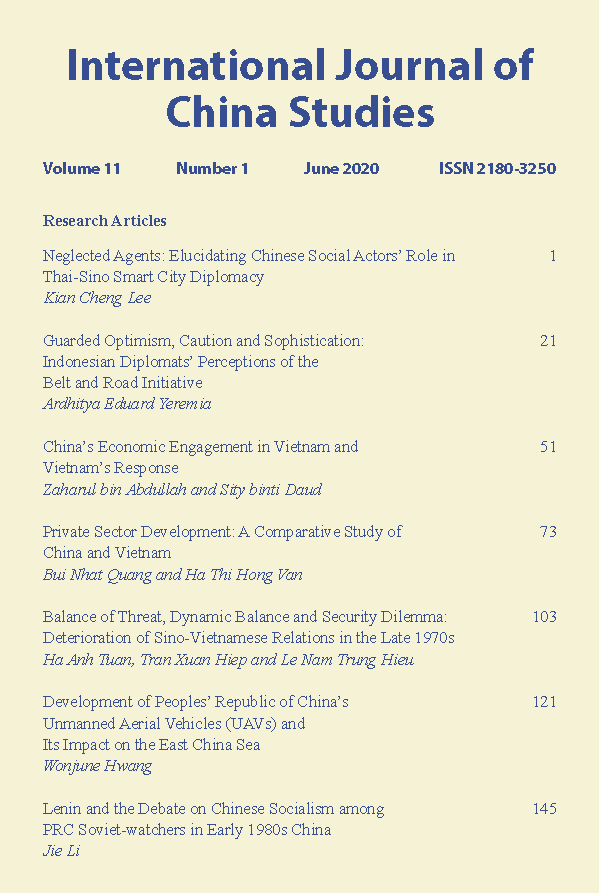Lenin and the Debate on Chinese Socialism among PRC Soviet-watchers in Early 1980s China
Keywords:
Deng Xiaoping, Lenin, Mao Zedong, Socialism, Chinese SovietWatchers, the Soviet UnionAbstract
After the death of Chairman Mao Zedong, when China gradually initiated reform and open door policies, Soviet leaders’ political agendas were no less appealing to post-Mao China than were Western agendas. This paper will show that Chinese scholars made tactical use of the writings and programs of Vladimir Lenin; this was done to grasp the nettle of Chinese socialism in the early 1980s, after the disastrous Cultural Revolution. According to the secondary scholarship, Chinese Sovietology after 1991 has consistently emphasized the role of the last Soviet leader Mikhail Gorbachev and his policies, which (in the eyes of the Chinese communist regime) brought about the downfall of the Soviet empire. In reality, however, Chinese Soviet-watchers were researching various Soviet leaders throughout the 1980s and 1990s – and particularly Lenin, who featured prominently in Chinese writings and claimed equal importance to Gorbachev. In the early 1980s, Chinese scholars used the first Soviet leader, Lenin, and his writings to rebuild faith in socialism and to disperse scepticism of the Chinese communist regime after the disastrous Mao era. While some pieces of work resorted to using Lenin’s socialist humanism to attack Maoism and Chinese communist rule, most of the time Chinese scholars used Lenin to strengthen
the weakening legitimacy of Chinese socialism without tarnishing the image of Mao, and to command support for new leader Deng Xiaoping’s open door policy and future reforms. Their main argument pointed out that Lenin’s moderate approach to socialism should be China’s model after Mao. Arriving at the conclusion of this paper, first, Lenin’s name could be used to help rally Chinese ommunists against the radical policies that had long prevailed. On many issues, his views were introduced in an effort to justify new policies or rally support behind new proposals in the early 1980s. His stand was invoked to weaken the hold of Maoist remnants in favour of
utilising all possible resources for economic construction, and to support reformers in their pursuit of more sweeping changes. Having said this, the use of Lenin was by no means for leading the attack on Mao, but rather for defending the legitimacy of Chinese socialism founded by the Chairman. His theory was intended to help save the Chinese communist regime that had been paralysed by the Cultural Revolution. The first Soviet leader was seen by Chinese officials and scholars as an epitome of the new kind of image the
Party forged for itself after the maelstrom of the Cultural Revolution. The Chinese writings played on these positive associations of the Grail of Lenin, making him the moral centre of its representation of post-Mao China.

